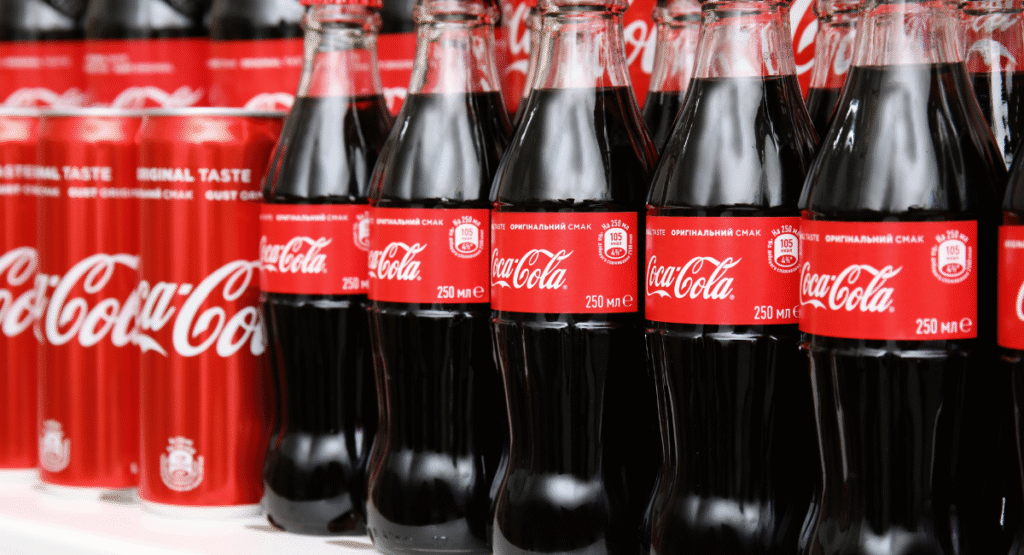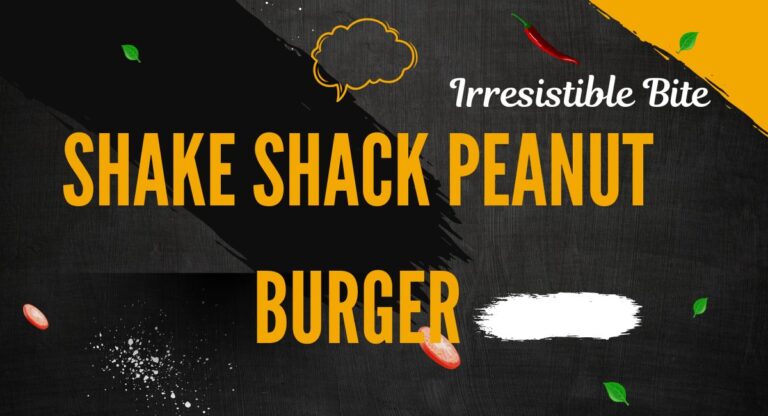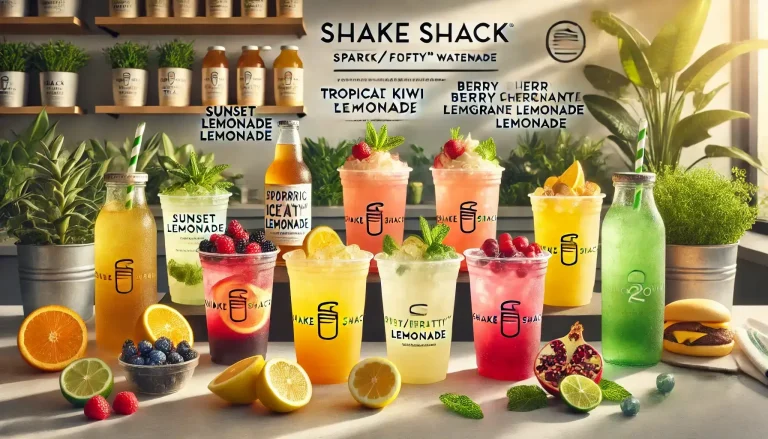5 Differences between Coke Zero vs Diet Coke
People often compare Coke Zero vs Diet Coke because both are sugar-free drinks. They look similar and are made by the same company, but they are not the same. Diet Coke has been around for many years, while Coke Zero is newer. The main reason people compare them is taste, ingredients, and health factors. Some prefer the lighter taste of Diet Coke, while others like the flavor of Coke Zero, which is closer to regular Coke. If you love exploring drink choices, you might also enjoy checking out the Shake Shack Drinks Menu
Many people are unsure which one fits their needs better. By looking at the Coke Zero vs Diet Coke differences in taste, ingredients, nutrition, and health impact, this article will help readers make a simple choice. It is not about proving one better than the other but about giving clear details.
What is Diet Coke
Diet Coke is a sugar-free soft drink created by Coca-Cola. It was launched in 1982 as an alternative for people who wanted to enjoy a cola taste without sugar or calories. Instead of sugar, it uses artificial sweeteners such as aspartame to keep the drink sweet. This made it popular among people who are mindful of their weight or want to cut back on sugar.
Unlike regular Coca-Cola, Diet Coke was not designed to taste exactly the same. It has its own unique flavor that is lighter and less sweet compared to the original. Many people enjoy this taste because it feels refreshing and different. Over time, it has built a strong fan base that prefers it over other soft drinks.
Diet Coke also became well-known for offering a wide range of flavors. Versions like Diet Coke Cherry, Diet Coke Lime, and even Diet Coke Vanilla were introduced to give people more options. This helped the brand stay fresh and appealing to a variety of tastes.
What is Coke Zero
Coke Zero is a sugar-free soft drink made by Coca-Cola. It was first launched in 2005 as an option for people who wanted a drink that tasted closer to regular Coke but without the sugar or calories. Unlike Diet Coke, which has its own unique flavor, Coke Zero was created to mimic the classic Coca-Cola taste as much as possible. It uses artificial sweeteners like aspartame and acesulfame potassium to achieve this sweetness.
The idea behind Coke Zero was to attract people who didn’t enjoy the lighter flavor of Diet Coke. Many younger consumers and those loyal to the original Coke found Coke Zero more appealing. The drink became especially popular among people who wanted to cut calories but didn’t want to lose the familiar taste of Coke.
Over the years, Coca-Cola has updated Coke Zero with a refreshed formula and branding. In some places, it is sold as “Coca-Cola Zero Sugar,” but it still serves the same purpose. It aims to give the closest possible experience to drinking regular Coke without the sugar.
Coke Zero vs Diet Coke
| Feature | Diet Coke | Coke Zero |
| Taste | Has a lighter, unique flavor, not like regular Coke | Made to taste almost like classic Coca-Cola |
| Sweeteners Used | Uses Aspartame only | Uses Aspartame + Acesulfame Potassium |
| Launched | 1982 | 2005 (later rebranded as Coca-Cola Zero Sugar) |
| Target Audience | Marketed as a lifestyle drink for people wanting fewer calories | Marketed to younger people wanting the real Coke taste without sugar |
| Branding Style | Seen as a lighter, classic diet option | Bold, modern, and closer to original Coke branding |
Ingredients Breakdown
Diet Coke Ingredients Breakdown
Diet Coke is sweetened with aspartame, which is the main difference in its formula. This sweetener gives it a lighter, distinct flavor. Along with this, Diet Coke includes carbonated water, caramel color, phosphoric acid, caffeine, and natural flavors. These ingredients provide the fizz, color, and unique taste that set it apart from both regular Coke and Coke Zero.
Coke Zero Ingredients Breakdown
Coke Zero uses a blend of aspartame and acesulfame potassium as its sweeteners. This combination makes it taste closer to the original Coca-Cola. Like Diet Coke, it also contains carbonated water, caramel color, phosphoric acid, caffeine, and natural flavors. The key difference is how the sweeteners are balanced, which helps Coke Zero mimic the classic Coke flavor without sugar or calories.
Nutritional Value
Diet Coke Nutritional Value
Diet Coke contains zero sugar and zero calories, making it a popular choice for individuals who are reducing their sugar intake or managing their weight. It also has 0 grams of fat and 0 grams of protein. The drink includes a small amount of sodium, usually around 40 mg per serving, and about 46 mg of caffeine in a 12-ounce can. Its nutritional value is focused on being calorie-free, but it does not provide any vitamins or minerals.
Coke Zero Nutritional Value
Coke Zero also has zero sugar and zero calories, just like Diet Coke. It contains 0 grams of fat, protein, and carbs, making it another low-calorie option. The sodium level is usually around 40 mg per serving, and the caffeine content is about 34 mg in a 12-ounce can. Coke Zero also does not offer any vitamins or minerals. Its main selling point is the flavor, which is made to taste closer to original Coca-Cola.

Popularity and Market Trends
Coke Zero
Coke Zero has become one of Coca-Cola’s fastest-growing drinks in recent years. Sales have seen double-digit increases, and it now makes up nearly a third of Coca-Cola’s total volume worldwide. The main reason for this growth is the rising interest in low-calorie and sugar-free options. Younger audiences, in particular, are drawn to Coke Zero because it tastes more like the original Coke. Coca-Cola has also refreshed its branding with campaigns such as “Best Coke Ever?” to keep the product modern and appealing.
Diet Coke
Diet Coke still holds a strong place in the market and remains one of Coca-Cola’s most recognized products. It has loyal fans and continues to rank among the top sodas in the U.S. However, overall, traditional diet sodas are not growing as quickly as zero-sugar alternatives. Many restaurants and fast-food outlets are now offering Coke Zero more often than Diet Coke, showing how consumer preferences are changing.
Conclusion
Coke Zero vs Diet Coke is a common debate for soda lovers. Both drinks are sugar-free and calorie-free, but they are not the same. Diet Coke has its own lighter taste, while Coke Zero is made to be closer to the flavor of classic Coca-Cola. The difference comes mainly from the sweeteners used in each drink.
The choice between Coke Zero vs Diet Coke depends on your taste preference. If you like a unique, crisp flavor, Diet Coke may be right for you. If you want something that feels more like the original Coke, then Coke Zero is the better option. Whether you prefer Coke Zero or Diet Coke, both pair well with burgers, fries, and shakes. You can explore the full Shake Shack Menu Prices to see what drinks and meals are available.





